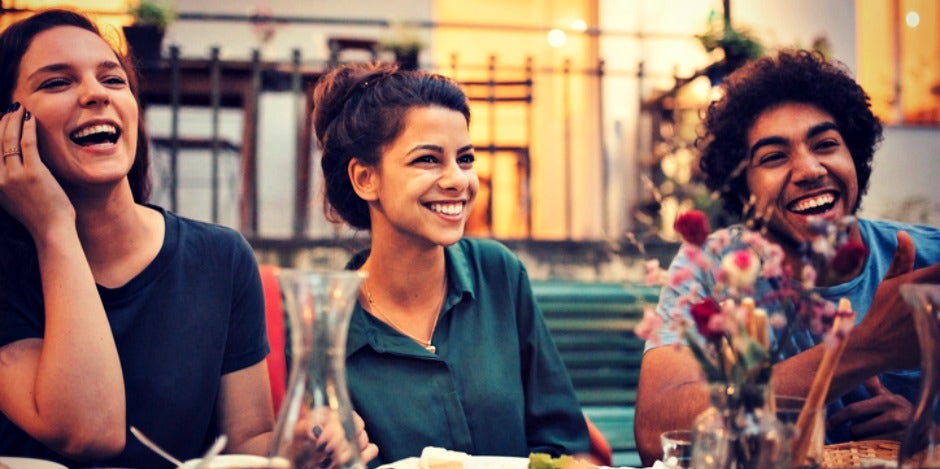How We Must Reframe 'Social Distancing' To Truly Protect Ourselves & Others During The Coronavirus Pandemic
Taking precautions to limit the spread of Coronavirus is critical, but we must do so together.
 Getty
Getty Editor's note: the following article was originally published in emails sent from Rabbi Yosef Kanefsky to the members of Congregation B'nai David-Judea in Los Angeles, CA on March 3 and March 10, 2020.
I'd like to take half a minute to reflect on the human, religious dimension of this present hour and share thoughts from my concerned heart to yours as all of us, along with the entire globe, worry about the Coronavirus outbreak.
One of the brand new terms that has entered our daily conversation is "social distancing".
It is shorthand, as we know very well, for the practical physical precautions that we all need to and must take in order to protect ourselves and others. I'd humbly suggest though, that we use the term itself sparingly, if at all.
Language is a powerful shaper of thinking. And the very last thing we need right now is a mindset of mutual distancing. We actually need to be thinking in the exact opposite way.
Every hand that we don't shake must become a phone call that we place. Every embrace that we avoid must become a verbal expression of warmth and concern. Every inch and every foot that we physically place between ourselves and another, must become a thought as to how we might be of help to that other, should the need arise.
It is obvious that "distancing", if misplaced or misunderstood, will take its toll not only upon our community's strength and resiliency, but upon the very integrity and meaning of our spiritual commitment. And who knows if it was for this time that we have committed ourselves to walk in God's ways.
Let's stay safe. And let's draw one another closer in a way that we've never done before.
As I mentioned on Shabbat morning, it is very striking that the advice that the CDC and other health agencies are urging us to follow is heavily tilted toward what we can do to protect others.
Of course, washing our hands will help to protect us too, but hand washing is equally about diminishing the possibility of our spreading the virus to someone else, God forbid.
The imperative to protect others is the reason we are being told to cough into our elbows and to avoid going into public places if we are feeling sick.
Particularly interesting to me was the information that wearing a mask in public places does little to protect the wearer. The purpose rather would be to protect others who are around the wearer.
In this sense, the mask is a metaphor for how we — our families, our communities, our world — will best handle and emerge from this crisis, through caring about and caring for one another.
Of course, we will protect ourselves as well. But likely the most impactful thing we will do as we navigate this anxious chapter is to be constantly mindful of protecting others.
As the weeks go on, our altruism will likely need to go well beyond merely not sickening others.
- If there are food shortages in stores, we will need to check in on neighbors and, in particular, on the elderly and on those who live alone.
- If people need to be quarantined, we will have to inquire whether an in-home aid that a friend or neighbor depends upon is perhaps unable to come.
- If, God forbid, a major coronavirus breakout occurs among the city's homeless, there is no doubt that those of us with relevant medical expertise will be called upon to give of our time and efforts.
The way that we will protect and save ourselves is through protecting and saving others, as is always true.
When we next recite the Amidah, and recite the blessing for health, let's pause, and silently stand before our God who knows our needs even before we articulate them and who has called upon us to be the fingers of His outstretched hand.
Over the last 20 years, Rabbi Yosef Kanefsky has built B’nai David-Judea into a leading center of Modern Orthodoxy. Rav Yosef is driven by a firm belief that Jewish tradition can provide a blueprint for modern ethical living for everything from business dealings, to relationships, to communal standards to our interactions as global citizens.

